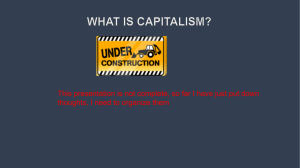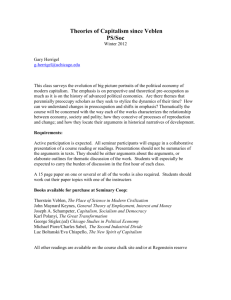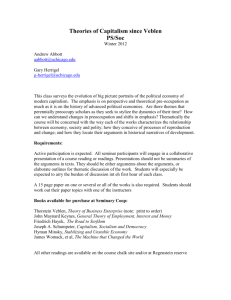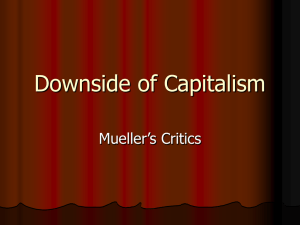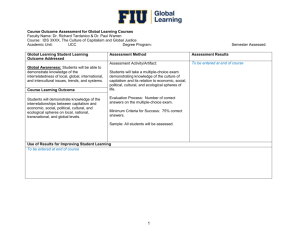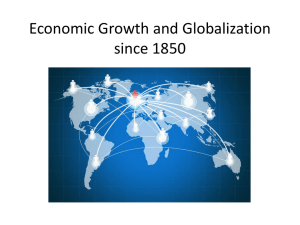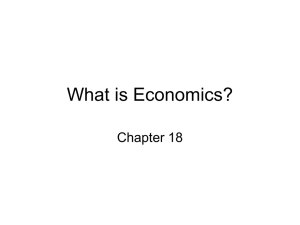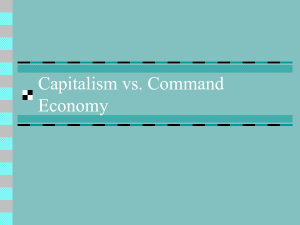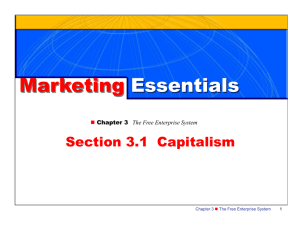What threatens capitalism now?
advertisement
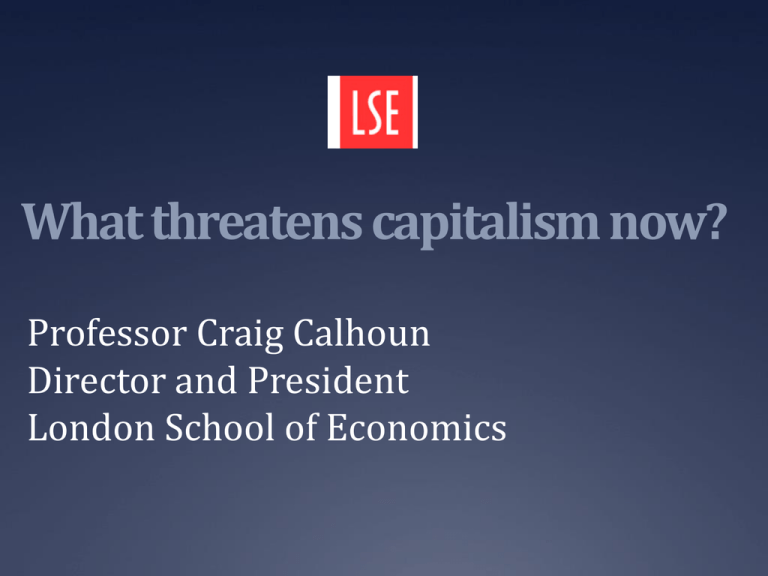
What threatens capitalism now? Professor Craig Calhoun Director and President London School of Economics Collapse? Capitalism seems to be surviving a deep and still lingering global crisis A longer period of depressed growth than the Great Depression Predictions of its immanent collapse often highlight genuine weaknesses, but nonetheless are misleading The USSR could “collapse” because it was a state. Transformation Capitalism is more likely to be transformed Possibly gaining new resilience Possibly changing beyond recognition State capitalism One system among many The model is not collapse of a state, but more like feudalism giving way to capitalism itself over 300 years. and giving way not simply to capitalism, But to stronger monarchies, empire and nation- states Moreover, capitalism is still growing in much of the world Thinking from the crisis Close to the precipice Too connected to fail Massive capital injections stopped the spiral. But bailouts triggered fiscal crises. Then fiscal crises triggered political, diplomatic, and social crises, especially in the Eurozone. But lingering unemployment, lack of growth and widespread unhappiness have brought no systemic transformation Systemic Risk Capitalism in general and the ascendancy of finance Dramatic increase in proportion of financial assets In US, from 25% in 1970s to 75% in 2008 Creative destruction and new technology Asset price bubbles Intensifications of interdependence “too connected to fail”? Institutional deficits Double movement (Polanyi) Dynamism Distribution Inequality and social cohesion Social contract The implicit bargain for growth Loss of legitimacy States, civil society, and even firms Scarce resources and degraded nature The need for growth and the limits to growth Land Energy Minerals Pollution Climate change Financial non-solutions Cap and trade Capitalism as an externalization regime The production of wealth and the distribution of “illth” Public goods Knowledge Environment Migration Informalization Capitalism’s context The return of geopolitics Faultlines of former empires Illicit capitalism Regions, religion and nation-states Cosmopolitanism and belonging The world-system Decline of hegemony Chaos Multilateral leadership Capitalism is unlikely to collapse next week, but it is also unlikely to last forever. And if it lasts, it will be because it changes

